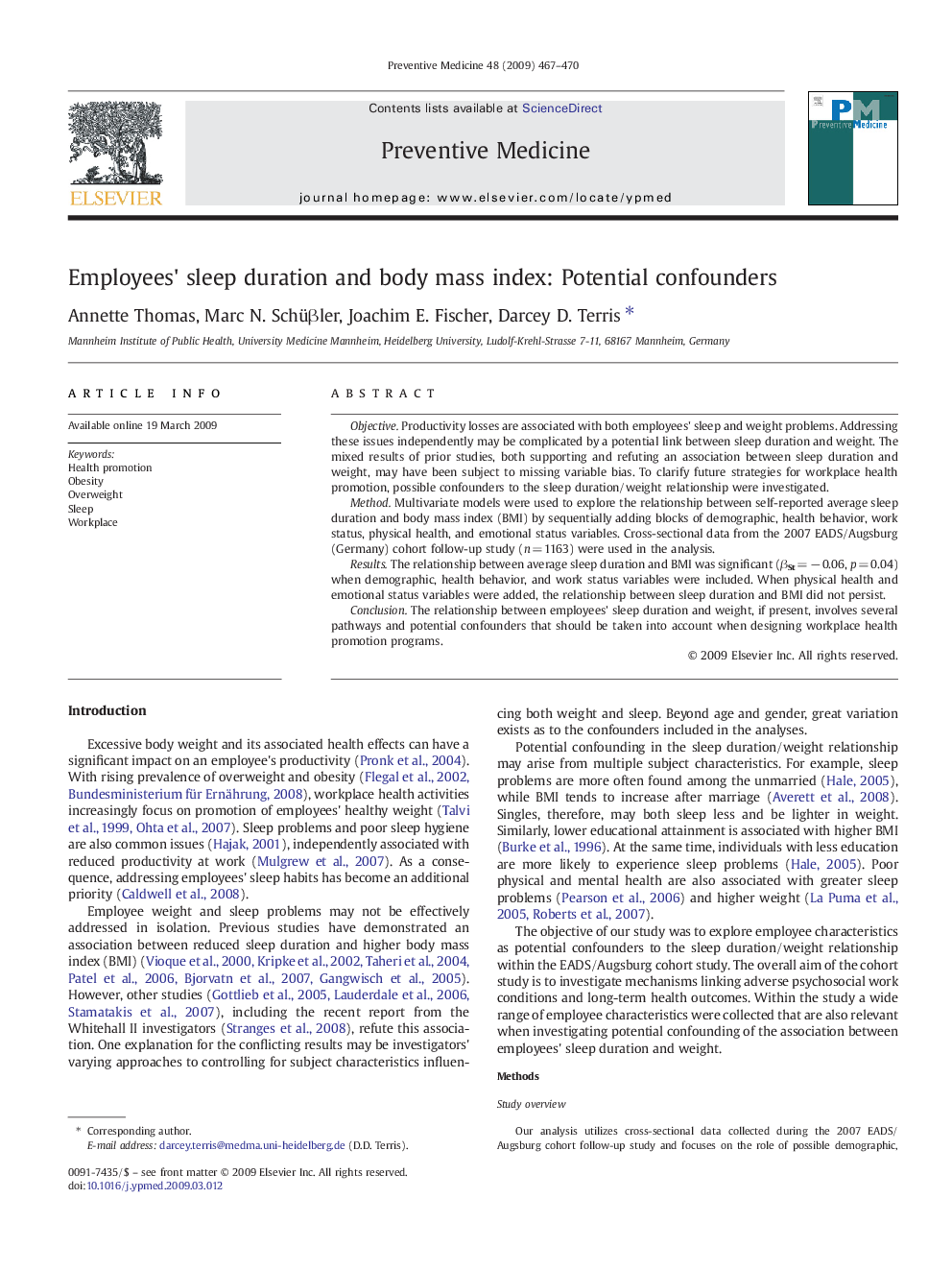| Article ID | Journal | Published Year | Pages | File Type |
|---|---|---|---|---|
| 3101422 | Preventive Medicine | 2009 | 4 Pages |
ObjectiveProductivity losses are associated with both employees' sleep and weight problems. Addressing these issues independently may be complicated by a potential link between sleep duration and weight. The mixed results of prior studies, both supporting and refuting an association between sleep duration and weight, may have been subject to missing variable bias. To clarify future strategies for workplace health promotion, possible confounders to the sleep duration/weight relationship were investigated.MethodMultivariate models were used to explore the relationship between self-reported average sleep duration and body mass index (BMI) by sequentially adding blocks of demographic, health behavior, work status, physical health, and emotional status variables. Cross-sectional data from the 2007 EADS/Augsburg (Germany) cohort follow-up study (n = 1163) were used in the analysis.ResultsThe relationship between average sleep duration and BMI was significant (βSt = − 0.06, p = 0.04) when demographic, health behavior, and work status variables were included. When physical health and emotional status variables were added, the relationship between sleep duration and BMI did not persist.ConclusionThe relationship between employees' sleep duration and weight, if present, involves several pathways and potential confounders that should be taken into account when designing workplace health promotion programs.
